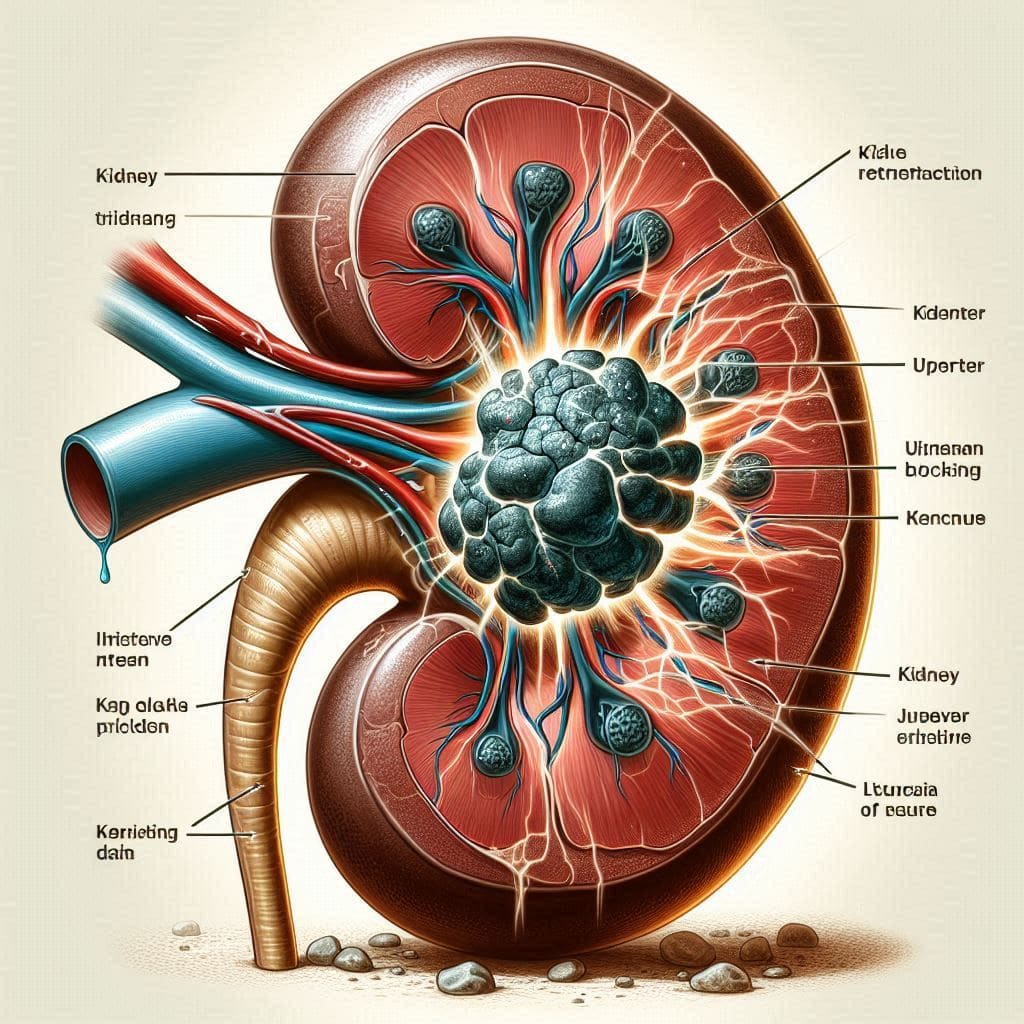Understanding the size of kidney stones
- Posted: May 11, 2024
- Updated: December 24, 2024
- Health
- By Faraz Ahmad
Kidney stones form when certain substances, such as calcium or uric acid, accumulate and turn into a solid form. This is usually due to lack of water in the body or certain other reasons. The size of the stones is sometimes very small, but sometimes they can be quite large and cause pain or other problems.

Kidney Stones (Renal Calculi)
Understanding Kidney Stone Sizes:Kidney stones, also known as stones, are solid particles that form in the urinary system. They form when the body is dehydrated or when certain substances such as calcium or uric acid accumulate in the urine. Diet, metabolic problems, genetics, certain medications and health problems can also cause kidney stones. These stones can vary widely in size and can sometimes be quite painful.
Sizes of Kidney Stones
Kidney stones come in a variety of sizes, from tiny crystals to the size of a golf ball. Differences in these sizes can affect several things:
Treatment of kidney stones
The size of kidney stones determines how they will be treated. Small stones can often pass out of the kidney without any treatment, while larger stones usually require medical treatment to remove them. A variety of tests, such as KUB, ultrasound, or IVP, are used to determine the size of kidney stones so that the most effective treatment can be chosen.
What kidney stones are made of
The size of kidney stones can also give some information about their contents. These stones can be made of substances such as calcium, uric acid, struvite, or cystine. When harmful substances in the body begin to accumulate in the kidneys, they can form stones. If these substances accumulate in large amounts, larger stones can form, which can block the urinary tract.
Here’s a chart showing the different types of kidney stones along with their shapes and sizes.
| Types of Kidney Stones | Shapes of Kidney Stones: |
Incidence Rates: | Risk Factors | Causes |
| Calcium Phosphate Stones | Amorphous | Less than 5% | Conditions like hyperparathyroidism and renal tubular acidosis increase the risk | Elevated levels of calcium and urine pH |
| Uric Acid Stones | Diamond | Around 10% | Gout and diabetes mellitus also contribute to the risk | Increased uric acid levels and urine pH |
| Struvite Stones | Coffin-lid | Around 10% | Anatomical abnormalities like neurogenic bladder pose additional risks | Elevated urine pH |
| Calcium Oxalate Stones | Enveloped | Approximately 85% | Middle-aged men are more prone than women | High levels of calcium and oxalate in urine |
| Cystine Stones | Hexagonal | Less than 1% | Cystine stones are mainly due to cystinuria, a genetic condition causing high cystine levels in urine, leading to stone formation. | Rare genetic disorder resulting in high cystine levels in urine |
Symptoms of kidney stone passing
When kidney stones pass through the urinary tract, they often cause a lot of pain, but not all stones cause pain. If you suspect that you have passed a kidney stone, there are some symptoms that should make you contact a doctor:
- Difficulty urinating
- Urine smells bad or appears muddy in color
- Nausea and vomiting
- Blood in urine
Time taken for kidney stone to pass
The time taken for kidney stones to pass is determined by their size. Small stones pass quickly. For example, if the size of the stone is 2 mm, it can come out in about 12 days. On the other hand, a 4 mm stone can take about 30 days to come out.
Can small kidney stones pass on their own?
If the size of the kidney stone is less than 5 mm, it usually passes out of the urinary tract on its own without any help. There is about a 75% chance of a 4 mm stone passing out within a month. On the other hand, there is a 55% chance of a 5 mm stone passing out, and it can come out within about 60 days.
To pass small kidney stones, drink more water and consume citrus juices such as orange. Also, a light diet that is low in salt, calcium and protein can help pass the stone. Good hydration prevents the stones from increasing in size and they can pass out slowly through urine.
If you feel pain in the lower abdomen while passing the stone, you can take some painkillers after consulting a doctor, such as ibuprofen, which can help in providing relief and make the stone pass easily.


